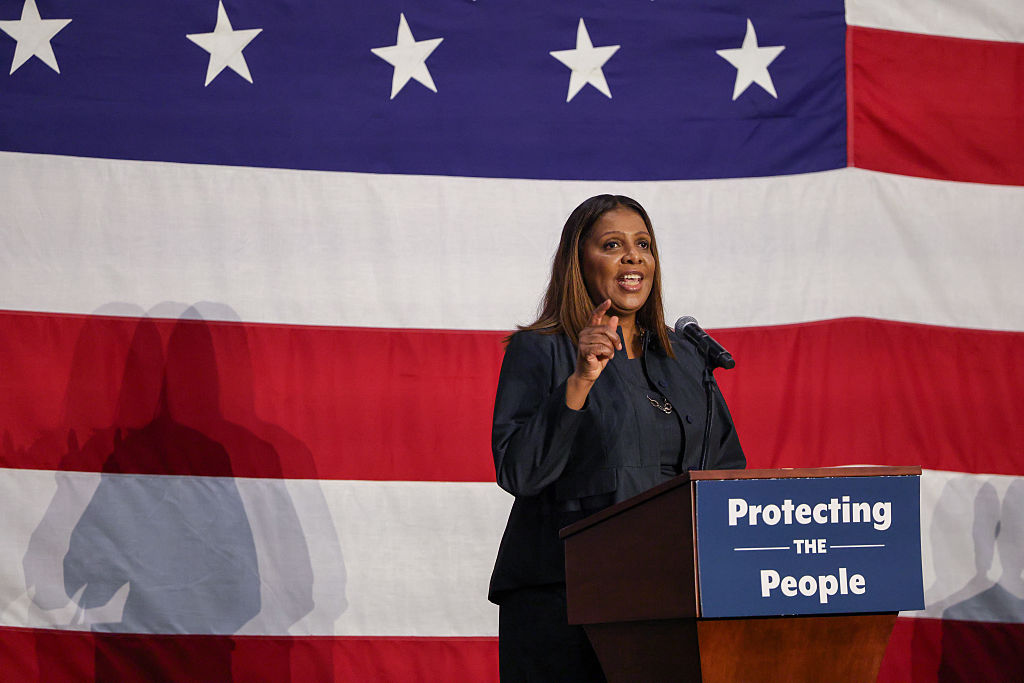Op-Ed: For Early Childhood Education, We’re At Mission Critical

Source: Prostock-Studio / Getty
In communities across the country, early childhood providers will temporarily modify their hours and engage the public about the crisis in early childhood education. The National Day Without Childcare occurs on May 8 and is an opportunity for childcare providers and advocates to highlight the lack of funding in the industry and its harmful impact on children, families, and providers alike. And while this event will only last a day, the needs of children and families where childcare is concerned must be elevated on a daily basis.
I offer these observations as a leader who is in close proximity to not only children and families but also the providers they rely on for care. As executive director of SPACEs In Action in Washington, D.C., I understand the importance of building power for Black, Latine and immigrant families. Our campaigns range from health equity and early childhood learning opportunities to climate and economic justice for communities most impacted. This work has always been important, but now, its mission critical.
While there is a federal formula that helps guide how states invest in education serving children in grades K-12, there is no similar mandate for children from birth to kindergarten. This has left each state to determine, on its own, what to invest in early childhood education. And very few states and locales are doing this right. What’s more, children and families are struggling amid an unfriendly Congress. As Republican lawmakers across the country actively work against reproductive justice, affirmative action, LGBTQ rights, and even DC autonomy, we must ask ourselves: what is actually being done to support children and their families?
Here in D.C., decision-makers must take the threat of an antagonistic federal body at face value. House Republicans just submitted their harmful Default on America Act which would cost D.C. families 700 childcare seats and 3,600 housing vouchers, while an additional 34,000 families would be at risk for losing SNAP or WIC benefits – including 5,000 seniors – and 95,000 D.C. residents at risk for losing health coverage due to increased work requirements. Their plan would make these cuts while forgiving $114B from the wealthy in tax cheats, and on top of the millions of federal dollars and programs lost at the end of the Public Health Emergency that impacted programs like the federal Child Tax Credit and emergency housing assistance.
If I’ve said it once, I’ve said it a thousand times; no one who calls themselves a policymaker should make decisions that erode the safety net of vulnerable families. In the face of these attacks on impacted communities, local governments need to step up, not back. This session, the Tax Revision Commission has an incredible opportunity to frame this city’s economic recovery to ensure that it works for the families most impacted by the downturn and tragedy of the past three years. We know D.C. gets more than one-third of its funding from the federal government, and we know that that funding is under threat. Now is the time to advocate revenue-raising strategies, ensure that everyone pays their fair share, and reflect on lessons gleaned during pandemic spending.
The Case for a DC Child Tax Credit (CTC)
Throughout the pandemic, we saw increased spending on programs and services that prioritized children and families. Of note was the increase in the federal child tax credit from $2,400 to $3,600 per eligible dependent which helped lift 40% of D.C. children out of poverty and 25% of D.C. children out of deep poverty. These children and families were offered a lifeline during the most extreme economic period in this country’s recent history. What’s more: the move to include not just working families, but families whose incomes were too low to qualify pre-pandemic, supported almost ⅓ of children the CTC previously left behind. And – yes – these policy changes overwhelmingly supported Black, Indigenous, and Hispanic families across the country.
While policies like the CTC may not come free, they are certainly priceless to our families and our economy. Cash transfers like the CTC and the federal stimulus payments helped keep our poorest families – and, in turn, our economy – afloat. Why? Because, unlike high-earners who hold onto their wealth, poor and working families put the money they get and the money they earn right back into the economy. Thus, raising revenues – whether it be by raising taxes on the extremely wealthy, increasing property taxes on high-value homes, or any of the many proposals our expert partners at DCFPI have offered up – to fund programs like the CTC helps families in the short-term and our economy in the long-term. This is the kind of investment and innovation that D.C., and other communities, need. Truthfully, we can’t afford anything else.
True economic recovery will not be achieved with piecemeal solutions. Children and families in our community – and in communities across the country – deserve a comprehensive network of investments that meet the needs of the most vulnerable among us. And an equitable tax code can only succeed when paired with an equitable budget that foments equitable spending.
LaDon Love is the Executive Director of SPACEs In Action.
SEE ALSO:
Op-Ed: Children Suffer When Policymakers Short-Change Early Childhood Education And Care
Same-Race Teachers And Students Make ‘Little Difference’ In Academic Achievement, Data Shows
















